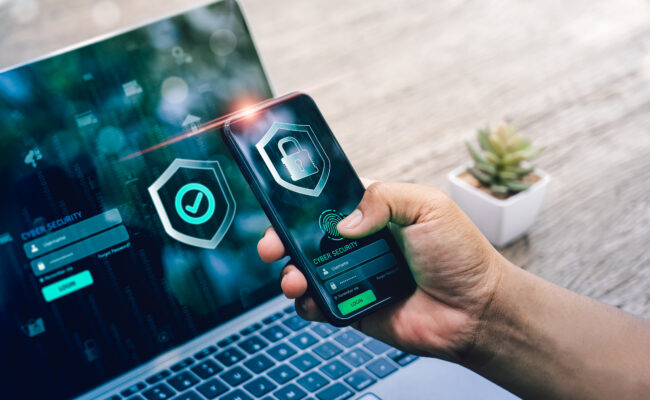Protect your Money
Protect your Money
 From the dark days of the Great Depression to cyber security measures today, Granger National Bank has helped you guard your hard-earned money. You work hard for your money. Protect it.
From the dark days of the Great Depression to cyber security measures today, Granger National Bank has helped you guard your hard-earned money. You work hard for your money. Protect it.
Here are 12 tips to help you avoid fraudsters:
- Be aware of suspicious texts.
If you get a message about a possible fraudulent transaction, you can confirm it or decline it, but after that we will not call you to confirm it. If you suspect the text message itself is fraudulent, call the bank at a known number. - Never return a call to a number or link from a text message.
Always use a known bank telephone number. And if you receive a call from our fraud department or a number that ‘looks’ like us but feel like something isn’t quite right, hang up and call us directly. - Safeguard your password.
We will never ask for your online/mobile banking password. Never give this out. - Block app installations with parental or password controls.
Enabling these controls will require your authentication to install apps. This can prevent a fraudster from installing a money transfer program on your device and connecting it to your bank account and/or card information already on your device.
For iOS –
1) Go to Settings and tap Screen Time.
2) Tap Content & Privacy Restrictions. If asked, enter your passcode.
3) Tap iTunes & App Store Purchases.
4) Choose a setting and set to Don’t Allow.
You can also change your password settings for additional purchases from the iTunes & App Store or Book Store. Follow steps 1-3, then choose Always Require or Don’t Require.
For Android –
1) Open the Google Play app.
2) At the top right, tap the profile icon.
3) Tap Settings > Authentication > Require authentication for purchases.
4) Choose a setting.
5) Follow the on-screen instructions. - Use bank preferred vendors, like Apple Pay, Google Pay, and Zelle®.
They use programs through which the actual account information isn’t transmitted. And never send money to someone you don’t know. - Don’t loan your phone to a stranger.
One known scam is to ask to borrow your phone, pretending to be lost, stranded, broke down, etc. But they’re looking for a money transfer app and then using it. While they have the phone, they could also approve any confirmation sent to the device. Instead, offer to make a call for them. And lock down apps where multifactor authentication or biometrics can’t be required. - Biometric security is preferred when available.
Unlike a password, which could be compromised, a face scan or fingerprint verifies that you are really you. - Be Password Savvy
– Never save passwords on your device.
– When creating passwords, don’t use common words or personal information that someone could find on social media, public online databases, etc.
– Use different passwords for different accounts/apps, not the same password for everything. - Sign up for alerts on your accounts.
With online/mobile banking, you can setup alerts based on user activity as well as transaction alerts based on transaction amounts, location, merchant types, transaction types, and spending limits. - Be discerning.
The bank will never ask you to transfer funds from your account to correct a previous transfer or prevent fraudulent activity. If someone asks you to do that, it’s a scam. Hang up and call us directly. - Keep Devices Locked.
When not in use, keep devices like cell phones and tablets locked. And if possible, have your Auto-Lock set to a short timeframe. - Beware of Fake Check Scams.
If someone sends you money and then asks you to send them some of the money back, it’s a scam.
Scenarios might include 1) You won a prize and are told to send back taxes/fees, 2) You sold an item, and the buyer overpays, or 3) You get paid as a secret shopper and are told to send some money back.
In all cases, that’s a scam!


